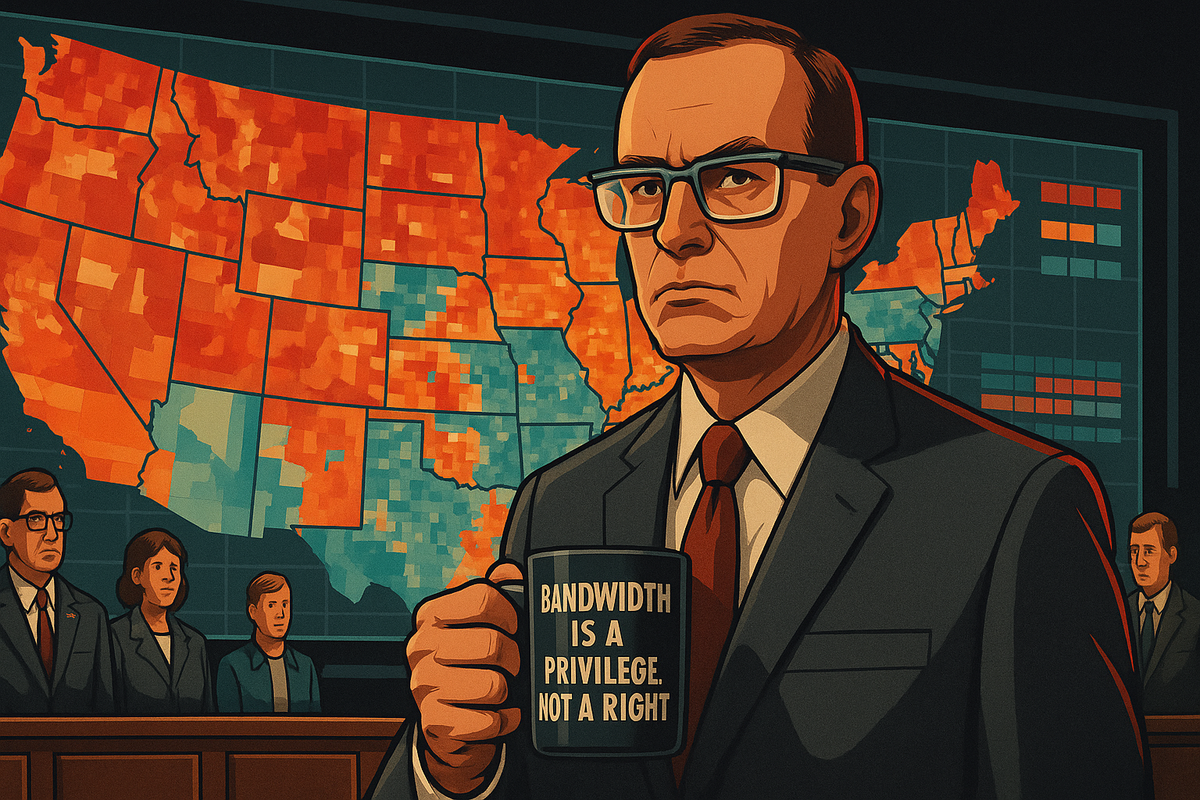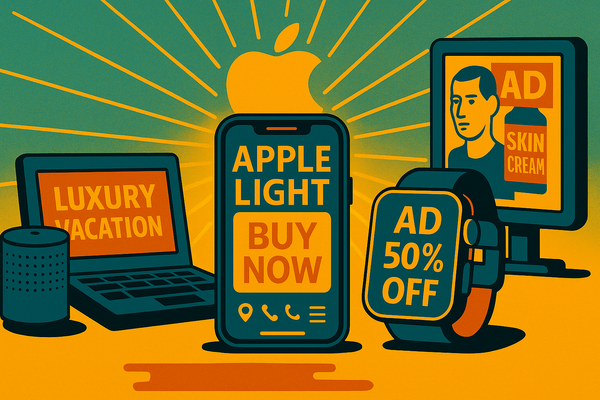FCC and FTC Assert Trade Imbalance Between Uploads and Downloads Is Unfair to ISPs, Investigate Tariffs as a Solution

Consumers May Soon Need Import Licenses to Download Cat Memes
WASHINGTON, D.C. — Citing years of “reckless digital consumerism,” the FCC today announced an unprecedented reinterpretation of “net neutrality.” Officials unveiled plans to impose data tariffs on consumer internet downloads to address what they describe as a “decades-long trade imbalance between digital imports and exports.”
“For too long, Americans have enjoyed unfettered access to downloading without giving back,” said Acting FCC Chair Brambleton H. Grieg, standing in front of an 8K, wall-to-wall monitor displaying every American’s monthly upload and download activity, color-coded for compliance, shame, and tariff eligibility. “This arrangement has created economic hardship for our nation’s ISPs, who are drowning in a surplus of inbound data capacity with no equitable exchange for outbound digital goods. It’s time consumers start pulling their upload weight.”
According to a 947-page whitepaper released by the FTC titled "Digital Mercantilism: Correcting the Consumer Cloud Surplus", the average U.S. household downloads 565 gigabytes per month but uploads only 35 gigabytes, creating what the agencies are calling “the Byte Deficit.” To correct this, the FCC proposes a system of download tariffs, potentially pegging the value of network data to a floating “megabyte dollar,” whose value will be calculated by the Nasdaq Cloud Commodities Exchange (NCCE) each morning based on influencer content quality and TikTok engagement volatility.
"Patriotic Payloads Only"
Commissioner Grieg emphasized that not all downloads would be treated equally. Under the new American Upload Credit Exchange (AUCE), “patriotic payloads”, such as footage of bald eagles, vintage warplanes in 4K, or AI-generated renderings of George Washington defeating cyberdragons, may qualify for tariff exemptions. Meanwhile, download data deemed “low-yield” or “morally idle”, including selfies, chain emails, and files over 100MB titled “final_FINAL_v17(1).pptx”, will be taxed at progressive rates.
Grieg also announced the launch of the “Self-Host or Shut Up” initiative, a patriotic challenge encouraging Americans to “reclaim their digital independence.” “You can run a Nextcloud server and federate with the Fediverse on a Raspberry Pi 4 with 8GB RAM and a decent UPS. If you can't figure out how to forward port 443, you don't deserve 4K streaming,” he barked, adjusting a belt holster full of ethernet cables.
Industry leaders expressed cautious optimism. Comcast issued a statement calling the proposal “a bold step toward upload accountability,” while Spectrum began piloting a "TradeSmart Router™", which automatically converts low-value uploads into NFTs, and then incinerates them on the blockchain to earn carbon credits.
Export-Only Lanes, Content Quotas, and Confusion
Sources inside the FCC leaked additional provisions under consideration, including:
- Upload Export Lanes: Dedicated fiber channels for outbound data, painted red, white, and blue, and monitored by machine-learning agents trained on WTO disputes.
- Content Quotas: Households will be required to maintain a minimum upload-to-download ratio of 1:2. Failure to comply will result in bandwidth tariffs or mandatory 24-hour Twitch streams featuring all household members, tagged with algorithmic morale classification.
- Domestic Data Sourcing: A new initiative, “Farm to Cloud,” will require that 60% of all downloaded content be generated within a 250-mile radius, to reduce digital download dependency.
As the debate continues, confusion reigns among consumers. At a suburban Starbucks in Bethesda, one user furiously deleted six years of Google Docs in a panic, while another began exporting his Dropbox folder onto a USB drive labeled “For the Data Embassy.”
Still, not all are dismayed. “Honestly,” said 68-year-old archivist Luther Quent, “this is the most excitement I’ve had since Gopher. If this finally gives uploading the respect it deserves, I say bring on the tariffs.”
Epilogue
As network upload tariffs took effect, a parallel crisis quietly emerged: the National Poop Trade Deficit.
“All the poops are going out of the house,” warned a leaked memo from the FCC’s Infrastructure Symmetry Task Force, “but nothing’s coming back in.” Officials say the imbalance is placing unsustainable pressure on national plumbing systems and threatening the sovereignty of domestic waste loops.
Chairman Grieg addressed the issue during a closed-door brown-bag session, stating:
Toilet owners have been too selfish for too long. For every flush that leaves the household, there must be a return flow: compost, methane gas, or at minimum a symbolic gesture of fecal reciprocity. This isn’t just about sanitation. It’s about dignity. It’s about balance.
The agency is now piloting a controversial Poop Re-Localization Credit (PRLC) system, rewarding households that voluntarily process municipal biosolids in the form of artisanal peat bricks, probiotic mulch, or high-density espresso pods.
Chairman Grieg was later seen sipping a triple-shot “kopi luwak” Americano brewed over reclaimed methane heat, from a mug labeled: “Full Cycle. Full Flavor.”




